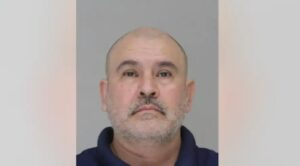An amicus curiae brief in support of Georgia prosecutors who are challenging the constitutionality of a new prosecutorial oversight commission was recently filed by Proskauer along with local counsel Canfield Law LLC on behalf of the Institute for Innovation in Prosecution at John Jay College (“IIP”). The lawsuit that was filed by four Georgia prosecutors and was led by the DeKalb County District Attorney Sherry Boston seeks to invalidate Georgia Senate Bill 92 (“SB 92”) and its creation of a Prosecuting Attorneys Qualifications Commission (“PAQC”). SB 92 gives the PAQC the authority to investigate and remove local prosecutors, and the members of the PAQC are appointed by the Governor and other elected officials. The lawsuit was filed in an attempt to invalidate both of these provisions. Plaintiffs contend that the passage of SB 92 was a clear attempt on the part of the legislature to undermine the capacity of specific district attorneys to implement reform-minded agendas for which they were elected.
Plaintiffs argue in the lawsuit that both SB 92 and the PAQC violate the Georgia Constitution in a number of different ways. These ways include violating the separation of powers by interfering with the discretion of prosecutors, restricting Plaintiffs’ rights to free speech, improperly delegating authority to the PAQC to define what conduct would subject prosecutors to potential discipline, and violating Plaintiffs’ due process rights because of the vagueness of the law. Plaintiffs further argue that SB 92 affects the capacity of prosecutors to focus on the most serious crimes, decline to pursue less serious offences, or settle them in more efficient ways, such as through pretrial diversion programmes, since it undermines the discretion of prosecutors. Plaintiffs argue that this threatens the ability of prosecutors to focus on the most serious crimes.
An explanation of how prosecutorial discretion is essential to both the job of the prosecutor and the running of the criminal justice system may be found in the amicus brief filed by IIP. It is not obligatory for prosecutors to file charges for every crime for which there is probable cause, nor are they obligated to file charges for the most serious offence conceivable. SB 92 ignores the practical reality that prosecutors must make decisions about whether and how to prosecute cases based on a constellation of factors. These factors include resource limitations, the needs and wishes of their communities, the personal history and characteristics of the alleged perpetrator, and the interests of justice. By limiting this power, SB 92 restricts the ability of prosecutors to make these decisions.
This concept about prosecutorial discretion is demonstrated with the help of an example that is supplied in the brief. Even though Georgia’s antiquated laws against adultery, fornication, and sodomy are still on the books, decisions not to prosecute those crimes are not being deemed illegal by legislators. Additionally, those decisions do not provide any basis for creating a commission to investigate, discipline, and remove district attorneys who refuse to charge those crimes. The brief goes on to clarify that the same approach is applicable whenever prosecutors find that it would not be in the public interest to pursue certain other categories of crime, such as possession of marijuana or providing reproductive healthcare, because it would not be in the public interest to do so. Additionally, the brief argues that Senate Bill 92 is an unacceptable intrusion into the delegated powers of the executive branch and that it will inhibit the capacity of prosecutors to publicly express their enforcement priorities to voters.
Judge Paige Reese Whitaker of the Fulton County Superior Court refused the plaintiffs’ plea for a preliminary injunction on September 29, 2023. The plaintiffs had requested that the PAQC be prevented from beginning its work on October 1, 2023. The lawsuit will go forward, and the plaintiff, Sherry Boston, has made a statement in which she referred to the court’s decision to deny the injunction motion as “just the beginning of what we expect will be a long legal battle.” The lawsuit will go forward.
IIP is a nonpartisan think tank that promotes data-driven methods, cutting-edge scholarship, and innovative thinking in relation to prosecution and criminal justice issues. It does this by bringing together policy experts, prosecutors, and the communities that they represent.
Alongside paralegals Anna Brodskaya and Susanna Nagorny, associates Russell Gorkin, Andrew Sherwood, Brooke Gottlieb, and Christopher Spadaro, as well as partner Robert Cleary, comprised the team that Proskauer put together.










